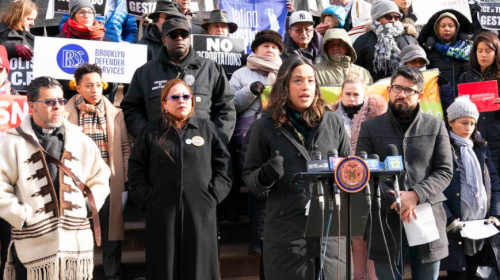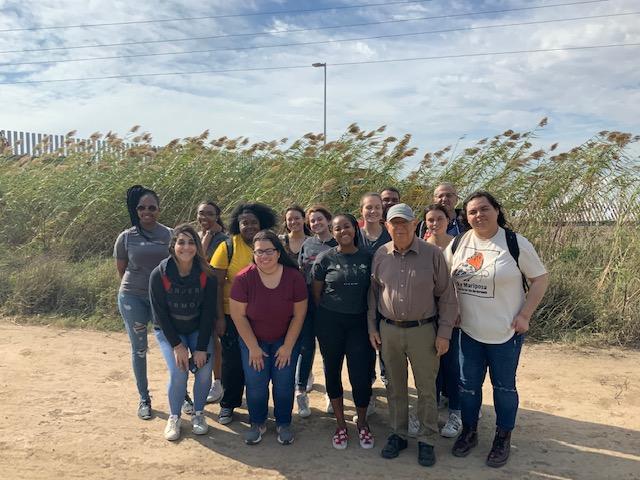Research Shows No-Bond/No-Release Policy Puts Vulnerable Population at Risk.
Read the Full Maryland Today Article "Detained Indefinitely" by Liam Farrell Here: https://today.umd.edu/detained-indefinitely-2d85bda1-5d77-490b-b8fe-56e11c682c30
An immigration reform measure meant to increase objectivity and transparency in decisions about detentions had the opposite effect, leading to scores of immigrants held indefinitely before and during a global pandemic, new research from the University of Maryland and Duke University finds.
Researchers analyzed 33,413 immigration detention cases in the New York City area between 2013 and 2019, obtained from Immigration and Customs Enforcement (ICE) through the Freedom of Information Act.
It’s the first study of ICE’s use of a risk classification assessment (RCA) made policy in 2012 to help officers recommend detention or release for hundreds of thousands of immigrants annually, based on factors ranging from flight risk and threat to the public to advanced age, disabilities or medical conditions.
“This detention risk tool was supposed to train officers and strongly discourage them from detaining low-risk immigrants who posed no harm to society and were not a flight risk,” said Robert Koulish, Joel J. Feller Research Professor and director of MLaw Programs at UMD, one of the study’s lead authors. “We discovered, unfortunately, the RCA has functioned as a risk tool in name only.”
Changes to the RCA’s algorithm in 2015 under the Obama administration all but removed the possibility of bond for detained immigrants, Koulish and colleagues said. Meanwhile, further restrictions to the RCA imposed by the Trump administration in 2017 constituted a blanket no-release policy for immigrants detained by ICE. As a result, almost none have been released in the New York City area since 2018—regardless of flight risk or threat to public safety.
“Even axe murderers have a right to a bond hearing, but not immigrants, including those who are old and sick and with other special vulnerabilities,” Koulish said. “Further, we are in the midst of a global pandemic, and immigrants in civil detention are being exposed to life threatening illness without access to testing, masks and, in some cases, soap.”
Katherine Evans, clinical professor of law and director of the Immigrant Rights Clinic at Duke University, also served as a lead author on the study. Ernesto Calvo, professor of government and politics at UMD, contributed to the research as well.
The analysis is part of a larger project on immigration policy to be featured in an upcoming edition of the Lewis and Clark Law Review as well as a book to be published by Cambridge University Press in late 2020.




